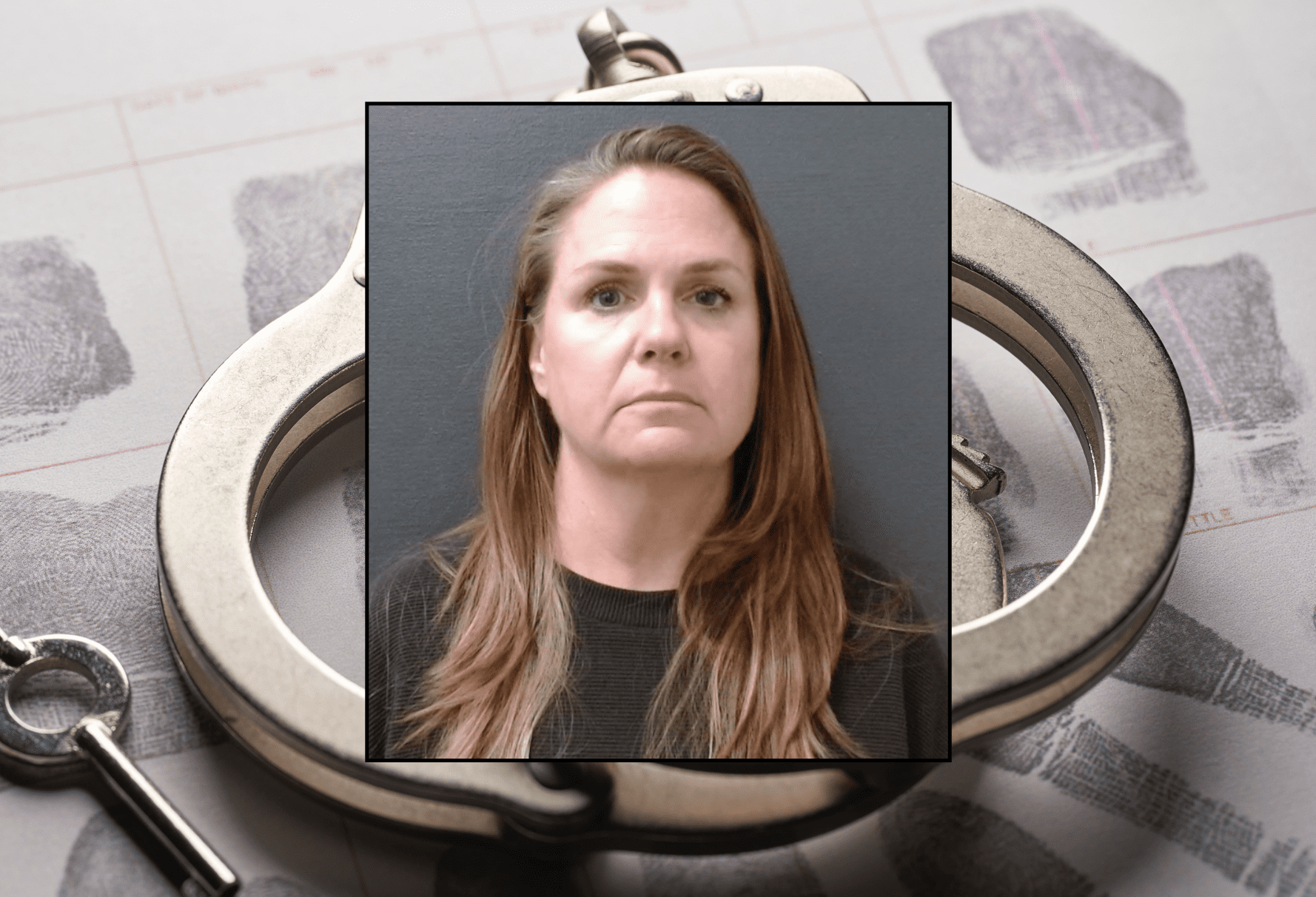Students in Texas public schools are sitting ducks for sexual predators, according to an attorney linked to a statewide citizen network.
Located in Collin County, parents in the Prosper Independent School District (ISD) were alarmed when a lawsuit was filed in August 2022 against the district. This lawsuit alleged the district engaged in a cover-up of a bus driver—Frank Paniagua—who allegedly sexually assaulted two young sisters more than 100 times. Parents went from alarm to outrage that the district never informed them about the allegations of sexual abuse.
Districts should be compelled to distribute this information far and wide, but apparently they’re not. “As far as I’m aware, state law does not require that sort of notification. And that was Prosper’s excuse for not telling the other parents of children who rode Mr. Frank’s bus,” education attorney Janelle Davis told Texas Scorecard. A mom of three kids, her children attend the scandal-plagued Prosper ISD. “But on the flip side, there is no prohibition from doing so either obviously so long as the personal information of the victims is protected.” She said that a proposed law during the regular 2023 legislative session—House Bill 4978—”would have required schools to notify parents and those whose children may have been exposed to a pedophile.”
“Unfortunately, it got no movement in the session,” she said.
Without such a mandate, this leads to a system where victims are isolated and districts can try and coast under the radar.
This setup also allows districts like Prosper to cover up abuses, which Prosper ISD had a history of cover-ups dating back to 2015. Since the bus driver debacle, the district has been besieged by self-inflicted scandals. Parents filed complaints against a cheerleading coach, alleging inappropriate behavior. And the former president of the trustee board resigned after being arrested for indecency with a child.
To date, there’s been no “independent investigation” of the original sex abuse scandal involving the bus driver.
Unenforced Laws?
Another school district appeared also to try and sweep similar serious threats to students under the rug. At Mansfield ISD, in North Texas, special education teacher Diego Barona was arrested for sexual assault of a minor. An additional charge of an “improper relationship” with a student was added later. Parents were not notified about Barona’s arrest until a month after his arrest. It was not the district who informed parents, but a Mansfield mom by the name of Myra Castles.
Such behaviors have been reported before. It was widely reported in September 2021 that former Keller ISD teacher and coach, Rickey Badley, had pled guilty to possessing child pornography and stalking. A student of Keller ISD and her parents sued the school district afterward. The plaintiffs said the reason was because the district didn’t fire, investigate, or tell Badley to stop stalking the 16-year-old female student.
“The words this teacher wrote to a 16-year-old girl were obscene in the extreme,” stated Michelle Simpson Tuegel, the plaintiffs’ attorney, in a press release. “But what is just as shocking, if not more so, is that upon being handed all of this positive proof that there is any school official—much worse, an entire school district—that would not take every measure possible to bring the situation to an immediate halt.”
Texas Scorecard contacted the family’s attorneys, seeking an interview with them and the parents about this case. No response was received before publication. Texas Scorecard also contacted attorneys representing parents in one of the lawsuits against Prosper ISD. They also did not respond before publication.
Parents of student victims not wanting to speak publicly isn’t shocking to Davis. “I think there’s also a very real fear of retaliation by the school district, or by other parents, or having their name dragged through the mud because they filed a lawsuit,” she told Texas Scorecard. “I personally know several people who have made complaints about things that have happened to their children in school—not necessarily sexual harm, but harm. They’ve been retaliated against. Their child’s then been accused of a crime anonymously, or stuff like that. It sounds crazy, but it happens.”
Davis added that, from her perspective and others she has spoken with, the parents of victims sometimes want to protect their child and just put the horrible matter behind them. “It’s an embarrassing topic, and they don’t want the information out there in the public sphere and that kind of thing.”
Since 2007, Davis’ practice has mostly been in civil litigation. That was until February 2023, when she left her law firm and started her own practice focused specifically on education law. She currently has a mix of cases that involve special education students not being provided what they need and “parents that have children who have been harmed in some way and are seeking accountability for those wrongs.”
Texas Scorecard asked Davis what the law requires government schools to do if there’s suspicion of a school employee engaging in predatory behavior towards a student. She broke it down into three parts.
“Teachers are mandatory reporters. The school nurses are mandatory reporters. Anybody with a state board of education certificate is a mandatory reporter to the Texas Department of Family and Protective Services,” she replied. DFPS is the parent agency of Child Protective Services. “I believe those require them to report like suspected child abuse or neglect, things like that to Texas DFPS or to local law enforcement, and I believe they only have 48 hours to do those reports.”
But there is another reporting requirement that is supposed to help ensure potential predators cannot move from one ISD to another. Davis said this requirement is in Texas Education Code section 22.093. She said that section requires within seven days a superintendent to report “any noncertified employee who resigns or is terminated” under certain circumstances. That being when there’s evidence that they’ve abused a child, committed an unlawful act with a student, or were involved in a romantic relationship or solicited one from a student.
Then there’s part three, a similar reporting requirement for superintendents regarding certified educators. That is in Texas Education Code section 21.006. “That report has to be done within seven days after the individual has been terminated or resigned,” Davis explained. This report will be transmitted directly to the Texas Education Agency through a portal. “[State law] also requires the superintendent to basically do like a report or send a copy of that report to their board of trustees.” Outside of the education code, they also have to send a separate report to DFPS.
While she can’t speak to DFPS reports, Davis has been part of a citizens statewide effort that she says questions if superintendents are following their reporting requirements to TEA. “I was part of a group of parents from across the state who submitted Public Information requests to a number of different school districts across the state and to the TEA,” she told Texas Scorecard. The purpose of the project was to verify if superintendents were following the law and filing their reports. Davis shared what they “found from a small sample size from across the state.” First, across the board inconsistency in the information that was being reported. Second, verifiable events that have occurred in certain school districts—she mentioned Lovejoy ISD and Prosper ISD—that were never reported to the TEA Misconduct Reporting Portal.
“In terms of that reporting requirement, it doesn’t seem like anybody’s enforcing that,” Davis said. “Failure to report those things to the TEA within seven days is a state jail felony, punishable by jail time or fines.”
She explained that “the penalties are even harsher” if it’s discovered that there’s intent to conceal a matter because they were trying to keep it quiet.
Texas Scorecard asked TEA for comment. “TEA maintains strict adherence to statute and rule governing the processing and investigation of misconduct reports submitted to the agency. Any submission of alleged educator misconduct is thoroughly reviewed to determine the appropriate next steps,” replied Jacob Kobersky of the agency. “Furthermore, any identification of systemic or individual non-compliance related to the requirements surrounding the reporting of alleged misconduct is subject to review by TEA to determine if sanctions should be levied against a school system or individual school employee.”
He added that “the TEA Misconduct Reporting Portal is just one way school systems may report allegations of misconduct to the agency. While the reporting portal was established in 2020 as a more efficient, streamlined method of reporting for school systems, alternative methods such as certified mail, fax, etc. may also be used.”
It’s clear that something is seriously wrong with the Texas Government Education system. While we’ve highlighted two known instances of government schools engaging in cover-ups after employees sexually abused students, this problem is likely more widespread.
In fact, more allegations of predatory behavior by government school employees have surfaced in 2023. In North Texas, Itasca ISD Superintendent Michael Stevens was arrested for the online solicitation of a minor. In San Antonio, a Northside ISD teacher and coach was arrested for “improper” relationship with a student. Nearby Houston, a Navasota ISD teacher, was arrested for distributing child pornography.
The Need for Voices
Here’s the problem: The system is set up to stifle the abused.
For change to occur, like the mandatory transmission of information about abusers, and the ability of parents to seek recourse, there has to be public pressure.
Brave, singular voices can join together to topple organizations and individuals who have been free to prey on the innocent for decades. Texans need to hear directly from parents who have been affected abusers. Davis understands the fears of parents to take this leap. “I can understand why people are afraid to speak up. At the same time, if people don’t speak up, we’re not going to have the changes that we need.”
If your child, or the child of someone you know, has been groomed or sexually assaulted by a government school employee, please email rmontoya@texasscorecard.com or kmarshall@texasscorecard.com. We will protect your identity upon your request.
This article has been updated since publication.
No ads. No paywalls. No government grants. No corporate masters.
Just real news for real Texans.
Support Texas Scorecard to keep it that way!





